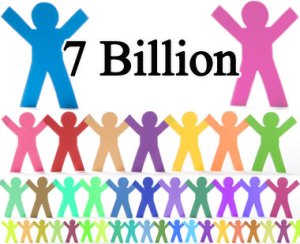Will she save the world, or at least help make it a better place?Photo: Andrew Albertson
This post is written by Laura Wright Treadway, a contributing editor at OnEarth.
Elon Musk is something of an eco-superhero: He founded and invested his personal fortune in the electric car company Tesla Motors, intent on changing the way we consume natural resources by remaking the way we get around. He also has five sons, which seems rather at odds with his planet-saving personal and professional mission. And in 2009, the South African-born multi-millionaire told The New Yorker‘s Tad Friend that he isn’t finished spreading his seed. In fact, he said that he intended to have more children with his second wife as part of his duty to see that “we don’t devolve into a not very literate, theocratic, and unenlightened future.”
It’s hard not to cringe or write off Musk as an elitist. But maybe some of you are cringing for another reason, too. In some dark recess of your mind, have you had a shade of that thought, just once? (Be honest.) Sure, you think, maybe my kid contributes to global burdens — resource depletion, global warming, biodiversity loss — but one day his sheer genius will make up for all that in spades. My kid is going to solve problems. He’s going be president of the United States, or at least a senator (one of the few good ones). And solve world hunger at the same time.
Most people I know bring children into this world with high hopes for their futures, but of course not everyone thinks this way. As an editor at OnEarth for seven years, I often read letters from readers who had chosen not to have children, they said, for fear of ushering additional consumers onto an already overburdened planet. Others worried about bringing children into a world rife with more problems than we seem able to manage today, let alone tomorrow, when global population is expected to outstrip the planet’s carrying capacity, if there in fact is such a thing.
Next month, the world’s 7 billionth person is due to be born. I expect to be delivering my first child around the same time. The thought that my kid could plausibly be the world’s 7 billionth living person is a staggering thought.
Just by virtue of her birthplace here in the United States, my child will be one of the most voracious consumers on the planet. It doesn’t matter that my family will make well-meaning efforts to limit our resource consumption and overall environmental footprint. As an American, she will wear regularly washed clothes, bathe frequently, eat fresh produce (bought in a store and shipped from someplace near or far), and probably scarf down the occasional hamburger. All of these things require more water and energy on a daily basis than people living in some parts of the world — say, places where a ruptured pipeline draws hundreds desperate to siphon a bucket of gasoline — could even fathom.
Sure, my daughter will live a relatively car-free life here in New York City, and one day she’ll walk to her elementary school carrying her lunch in reusable sandwich tins. But I’m not kidding myself — no matter what I do, short of leaving Brooklyn behind and heading off to a commune, she’ll still stomp far more heavily on this planet than the average little girl in sub-Saharan Africa.
And so I wonder: Do I in some way need to apologize to the world for this? Do I need to find a way to make up for it?
Part of me thinks I should stop with this silliness and reassure myself that I’ll raise my daughter to be a global citizen who thinks beyond the tip of her own nose, who finds a passion in life for making her world a better place. That’s the Elon Musk in me, the little voice that tells me she’ll grow up to be a wise citizen of this earth; she’ll recognize her good fortune in life and feel compelled to give back.
But surely I’m wise enough myself to know that I can’t determine what she’ll actually set out to do. So at the end of the day, there’s still a chance that she’ll just eat, drink, and be merry, gobbling resources at the expense of her booming global brethren.

Read more on population. Check out our series 7 Billion: What to expect when you're expanding
As the relative proportion of young, wage-earning workers in the First World shrinks, they’ll be forced to deal with the ever-rising cost of supporting their retired elders, who will be sticking around longer than ever before due to health-care improvements. So where does that leave the billions of people in developing nations who still need and deserve a leg up? Will we have the resources to improve access to freshwater or to fund technology-transfer programs that deliver clean energy to developing nations? Or will our ability to help those who are desperately in need simply grind to a halt? Worldwide conflicts have sprung from far lesser problems.
It’s hard for me to imagine how we’ll solve this dilemma — having to support an increasing number of dependents at home as well as abroad — but to continue fretting over the prospect of bringing another little consumer into the world seems to miss the point. Will I have five children in the belief that my DNA will make the world a more enlightened place? Decidedly not. But to make apologies for delivering what may be the world’s 7 billionth person seems to signal a loss of hope for our collective future. Depleted of natural resources or not, a world also depleted of hope is not one that I want to see my daughter live in.



